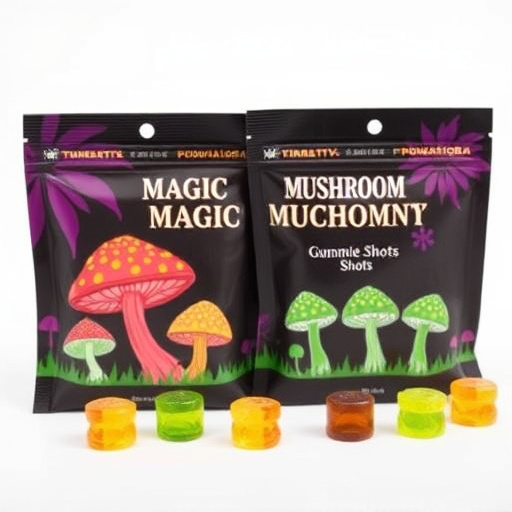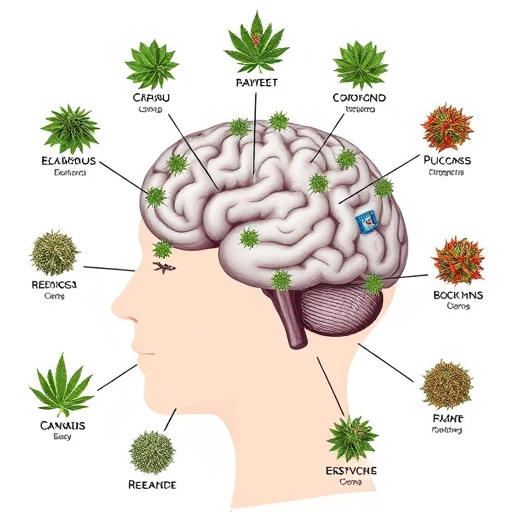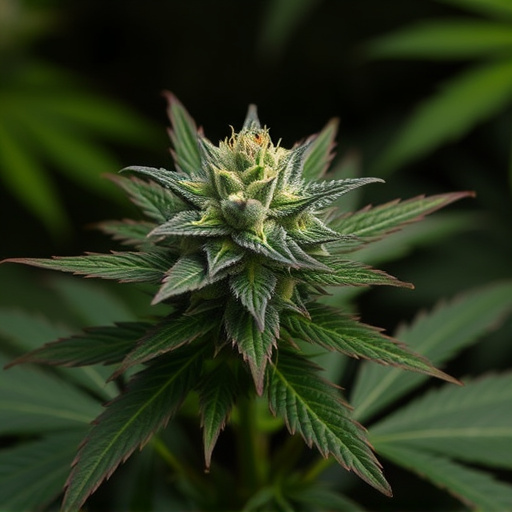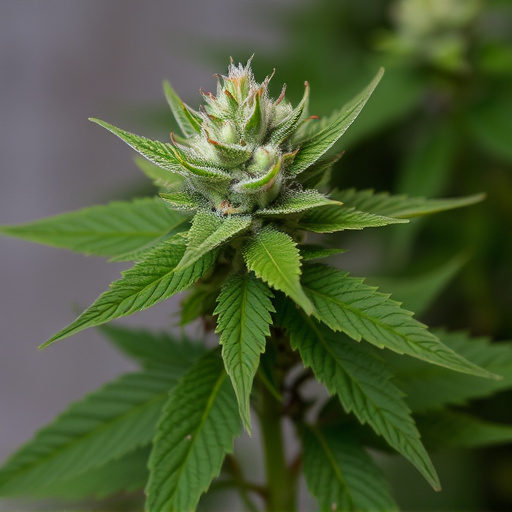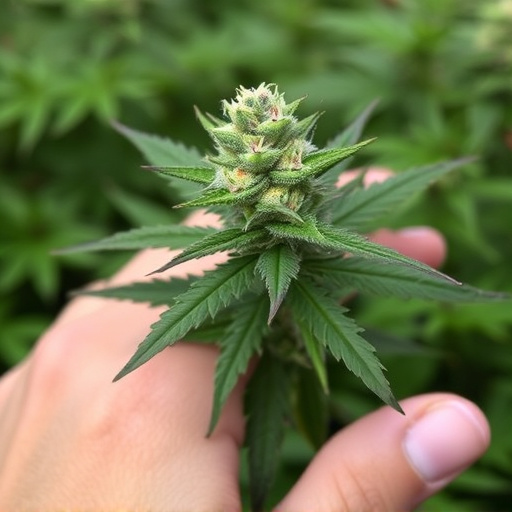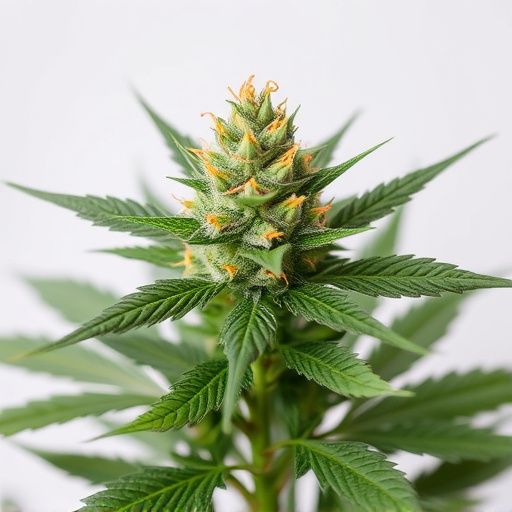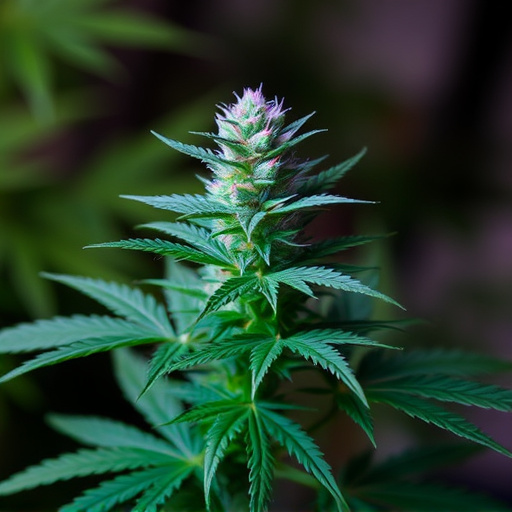Cannabis, through its interaction with the body's endocannabinoid system, offers potential therapeutic benefits for managing fibromyalgia, a chronic pain disorder. High-CBD, low-THC strains like Acai Berry, Charlotte's Web, and Granddaddy Purple show promise in reducing pain and inflammation. While more research is needed, these cannabis strains provide a safe, natural alternative for symptom management, empowering individuals to improve their overall well-being with personalized guidance from healthcare professionals.
Can cannabis flower offer a natural solution for improving mental health? This comprehensive guide explores the potential benefits of cannabis, with a particular focus on its impact on managing fibromyalgia symptoms. We delve into various cannabis strains known for their soothing properties and discuss scientific evidence supporting their safe use. By understanding the interplay between cannabis and mental well-being, individuals can make informed decisions regarding their healthcare choices, especially when it comes to managing chronic conditions like fibromyalgia with cannabis strains tailored for relief.
- Understanding Cannabis and its Impact on Mental Health
- Exploring Cannabis Strains for Fibromyalgia Relief
- Scientific Evidence and Considerations for Safe Use
Understanding Cannabis and its Impact on Mental Health
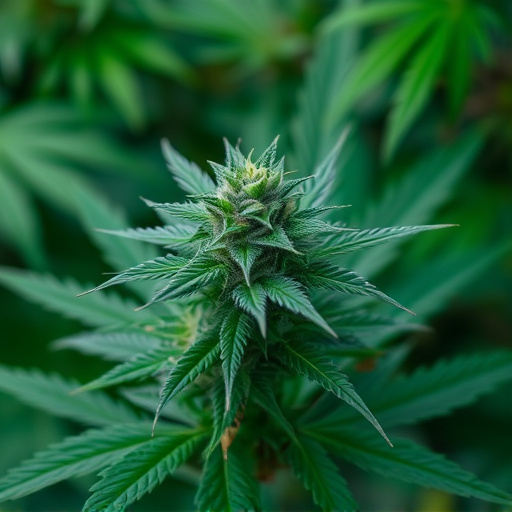
Cannabis, a plant with a rich history and diverse applications, has gained modern prominence for its potential therapeutic effects on mental health. Beyond its well-known psychoactive properties, cannabis contains various chemical compounds, including cannabinoids like THC and CBD, which interact with our bodies’ endocannabinoid system (ECS). This system plays a significant role in regulating mood, memory, appetite, and pain perception.
For individuals suffering from specific mental health conditions, certain cannabis strains have shown promise as complementary treatments. For instance, cannabis strains for fibromyalgia are often sought due to their potential analgesic and anti-inflammatory effects. Research suggests that the non-intoxicating compound CBD may help reduce chronic pain and improve sleep quality, which are common symptoms of fibromyalgia. Understanding how cannabis interacts with the body’s natural systems offers a glimpse into its potential as a tool for managing mental health, though further research is needed to explore its effectiveness and safe applications.
Exploring Cannabis Strains for Fibromyalgia Relief

Cannabis has long been used as an alternative treatment for various medical conditions, and its potential benefits for those suffering from fibromyalgia are gaining attention. Fibromyalgia is a chronic pain disorder characterized by widespread musculoskeletal pain, fatigue, and sleep disturbances. Many patients turn to cannabis strains known for their soothing and anti-inflammatory properties as a natural way to manage these symptoms.
Exploring specific cannabis strains for fibromyalgia relief has become a popular topic in the medical marijuana community. Certain strains are renowned for their high CBD (cannabidiol) content, which is believed to interact with the body’s endocannabinoid system, helping to reduce pain and inflammation. Strains like Acai Berry, Charlotte’s Web, and Granddaddy Purple have gained popularity among patients seeking natural fibromyalgia management options. These strains offer a potential alternative or adjunctive treatment approach, allowing individuals to take control of their symptoms and improve their overall well-being.
Scientific Evidence and Considerations for Safe Use
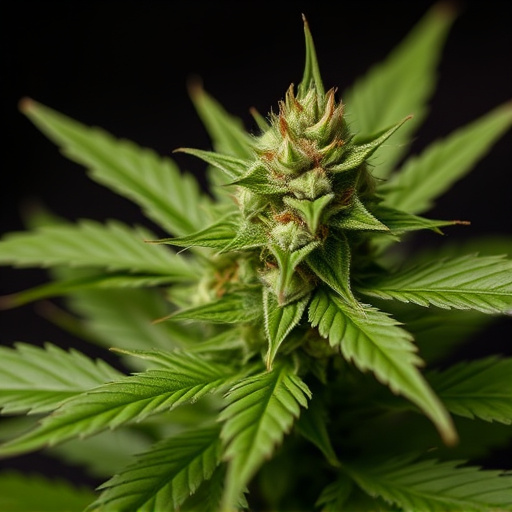
Cannabis has gained attention for its potential therapeutic effects on mental health, particularly in managing symptoms associated with various conditions. Scientific evidence suggests that specific cannabis strains, known for their high CBD (cannabidiol) content and low THC (tetrahydrocannabinol) levels, may be beneficial for individuals with chronic pain and fibromyalgia. Research indicates that CBD interacts with the endocannabinoid system, which plays a role in regulating mood, appetite, and pain perception, potentially offering relief from anxiety, depression, and neuropathic pain commonly experienced by those with fibromyalgia.
When considering cannabis as a complementary therapy, it’s crucial to focus on safe use practices. Different strains have varying chemical compositions, so consulting healthcare professionals is essential for personalized guidance. Dosage, method of consumption (e.g., vaporization or oral ingestion), and strain selection should be tailored to individual needs. Additionally, regular monitoring of potential side effects and interactions with other medications is vital. The legal status of cannabis varies across regions, so ensuring compliance with local regulations is paramount before exploring its therapeutic applications.
While cannabis has shown promise in managing symptoms of various conditions, including fibromyalgia through specific strains, it’s crucial to approach its use for mental health with caution. The scientific evidence is evolving, and more research is needed to fully understand its effects on different types of conditions. Always consult a healthcare professional before incorporating cannabis into your treatment plan, especially as a alternative or complementary therapy for mental health concerns. Remember, finding the right cannabis strain for fibromyalgia relief is just one aspect; safe and responsible use should always be prioritized.



